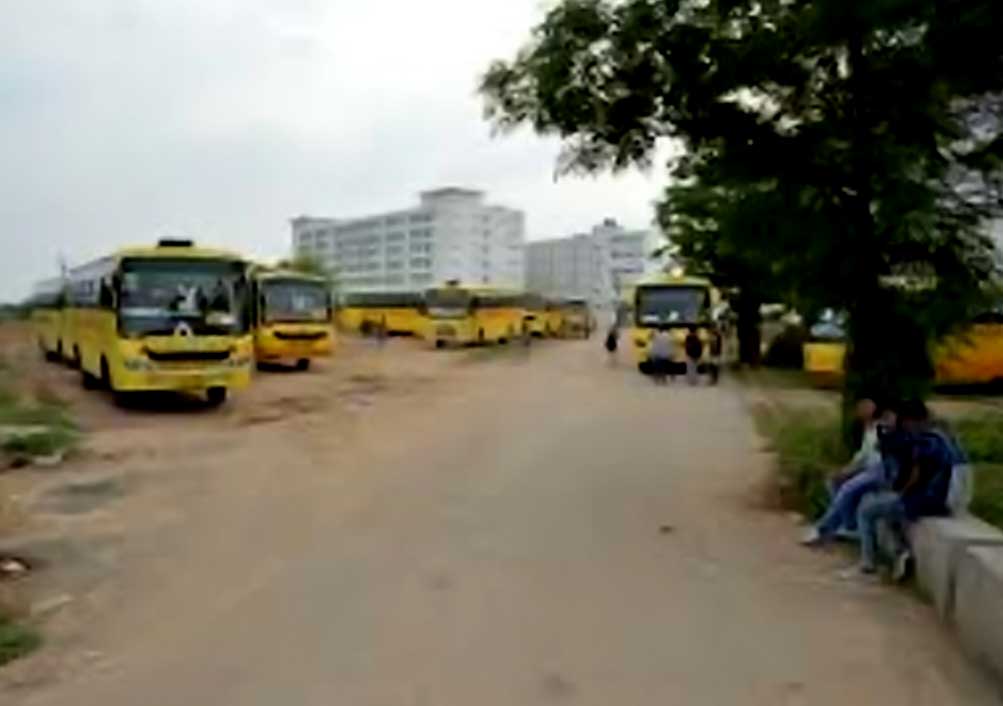Transporters deserved opportunity of hearing or at least show cause notice before action of cancellation of permits was taken, says P&H HC while directing impounded buses to be released

Read Order: M/s New Deep Bus Service and another v. State of Punjab and others
Tulip Kanth
Chandigarh, December 7,2021:The Punjab and Haryana High Court has directed that the impounded buses of transporters be released and also directed the petitioners to ply them subject to the conditions of the permit even while granting liberty to proceed as per law about any other infractions which may have been made by the petitioners.
The Division Bench of Justice Ajay Tewari and Justice Pankaj Jain was of the view that one of the main purposes of the Motor Vehicles Act, 1988 was to ensure that grant of permits is liberalized and made transparent and that the Rule was to grant as many permits as there are applicants and let the market forces ultimately separate the wheat from the chaff.
In this case, petitioners being transporters in the State of Punjab were issued Stage Carriage Permits under Section 72 of the MV Act. Due to nationwide lockdown on account of Covid-19, the petitioners could not deposit the Motor Vehicle Tax and the Regional Transport Authority, Faridkot (RTA) seized 26 buses of the petitioners.
The petitioners made a representation to the RTA praying for recovery of the Motor Vehicle Tax in installments and the Authority verbally permitted the petitioners to pay the tax in installments and assured the petitioners regarding release of the impounded buses. Thereafter, the petitioners paid the first installment and undertook to pay remaining installments.
The RTA in pursuance of the assurance of the petitioners, released only 6 buses and assured the petitioners that by the morning of October 13, 2021 remaining buses would be released. But thereafter, the RTA re-seized the 6 released buses again from 13th to 15th October. The petitioners filed a petition which was disposed of by this Court after the Court was informed that an earlier representation made by the petitioners had been rejected. On November 12,2021, the State Authority passed orders cancelling the permits.
Also, on the representation filed by the petitioner in the petition for payment of the due tax by way of installments, the RTA, Bathinda, allowed payment in four monthly installments by order dated October 11,2021 but after the petitioner had paid first installment, the order dated October 11,2021 was reconsidered and withdrawn.
The Division Bench stated that the law mandates that the Scheme under Chapter VI once published is law. It shall have an overriding effect on Chapter V of the Act and any other law.
The Bench noted that admittedly, it is Section 86 of the MV Act which is the only provision which governs the cancellation and suspension of permits. Section 86(1) provides that no permit shall be suspended or cancelled unless an opportunity has been given to the holder of the permit to furnish his explanation.
“The argument raised by the learned Senior counsel representing the State with respect to the admission of liability by the petitioners and thus, there being no prejudice caused to them is to be noticed to be rejected. Even if, the petitioner admitted the liability, he deserved a chance to make payment in lump sum before sounding the death knell to its business in form of cancellation of permits”, the High Court added.
The Bench went on to add that the petitioner deserved a chance to make due payment of tax and its right to have that chance gained more significance in view of Section 11-B(2) of the 1924 Act.
The Scheme in question was Punjab Govt. Gaz. (Extra), February 22, 2018 (PHGN 3, 1939 SAKA) No. S.O.10/C.A.59/1988/Ss.99 and 100/2018 (framed under Chapter VI).
The Court held that conjoint reading of Section 86 and Clause 11 of the Scheme led to the inevitable conclusion that the petitioners deserve opportunity of hearing or at least show cause notice before penal action of cancellation of their permits was taken invoking Section 103(2)(b) of the MV Act.
There are host of allegations levelled by the petitioners in the writ petition including hostile discrimination against them, political vendetta, malice in law etc., however, having found the action of the State to be arbitrary and illegal on this primary issue, the Court need not go into the said issues, clarified the Bench.
Sign up for our weekly newsletter to stay up to date on our product, events featured blog, special offer and all of the exciting things that take place here at Legitquest.




Add a Comment